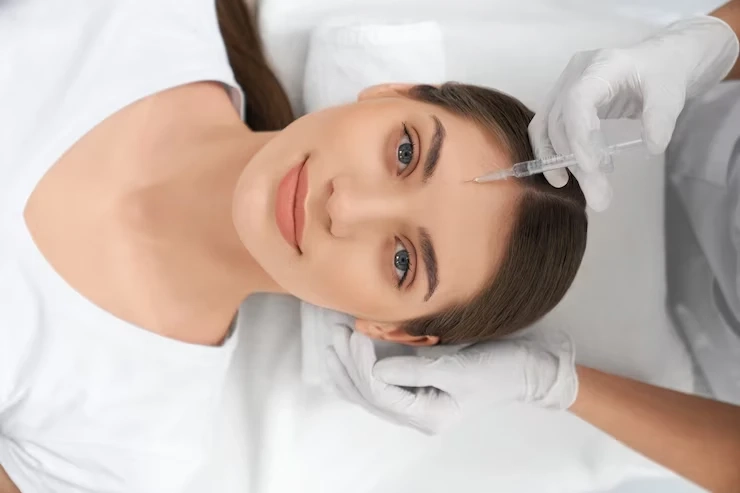Describe Botox.
One of the most well-known brands of injections with botulinum toxin is Botox Pittsburgh PA. Neurotoxins such as botulinum toxins weaken muscles and have an impact on nerves. A botulinum toxin injection may be given to you for therapeutic or cosmetic purposes. Small doses of Botox are administered by medical professionals to target muscles to reduce wrinkles, prevent migraines, and treat a variety of other medical issues.
How does Botox function?
Botox prevents nerve signals from reaching muscles. Thus, injected muscles are unable to contract (tend to tighten up). Although always transient, these effects may continue for several months. The muscle that is injected depends on the main problem region. A single session might be used to treat multiple issues.
What aesthetic issues might Botox be used to treat?
Injections of cosmetic Botox are used to treat ageing symptoms. This procedure can reduce the appearance of fine lines and wrinkles on several parts of your face, including:
Eyebrows.
Forehead.
Nose.
eyes (feet of crow\'s).
Lips.
Chin.
Jawline.
Neck.
What components are in Botox?
The neurotoxins utilised in Botox are produced by a bacterium known as Clostridium botulinum. For medical injections, a particular strain of bacteria (type A) is used by healthcare professionals.
Natural botulinum toxins can be found in contaminated food and soil. You can get botulism if you swallow a lot of botulinum toxin or if the germs penetrate into a wound. Breathing is impacted by this significant nervous system illness. Botox is created in a lab for maximum safety and effectiveness. The botulinum toxins are sterilised and diluted by technicians so that they won\'t result in botulism.
How safe is Botox?
When administered by a qualified healthcare provider, Botox Pittsburgh PA is often safe. If Botox injections are appropriate for you, ask your medical team.
How do I get ready for Botox?
Make sure the list of prescription drugs and dietary supplements you take is up to date for your doctor. The possibility of bruising at the injection site is increased by some drugs. These include nonsteroidal anti-inflammatory medications (NSAIDs) and blood thinners such as Warfarin®. You are more prone to bruising and redness after drinking alcohol. For 24 hours before a procedure, abstain from alcohol.
What can I anticipate from a Botox procedure?
Small doses of Botox are injected using a fine needle by your healthcare professional into the treatment region. Several injections may be given to you in various locations, depending on the problem. What else should you know about Botox treatment?
An outpatient procedure, Botox. The same day, you\'ll be allowed to return home.
Usually, discomfort is only slight. Although the injections may hurt and be uncomfortable, the treatment is short. Before administering injections, your healthcare professional may use a topical numbing medication on your skin.
You might receive anaesthetic. You might get local or regional anaesthesia if you need injections for an overactive bladder.
What should I understand about aftercare for Botox?
Unless your doctor advises otherwise, you can resume working and engaging in most activities right away following treatment. To lessen bruising, swelling, or redness:
For 12 hours, avoid rubbing or applying pressure to the treated area.
Don\'t lie down for three to four hours; remain upright.
For 24 hours, refrain from any physical activity.
How frequently should one have Botox?
The effects of Botox Pittsburgh PA typically last three to four months. At this point, retreat is advised. However, over time, your muscles may learn to contract less. Treatments might be spread out across longer times as a
result. Based on your particular requirements, your healthcare professional can advise you on how frequently you should receive Botox.


